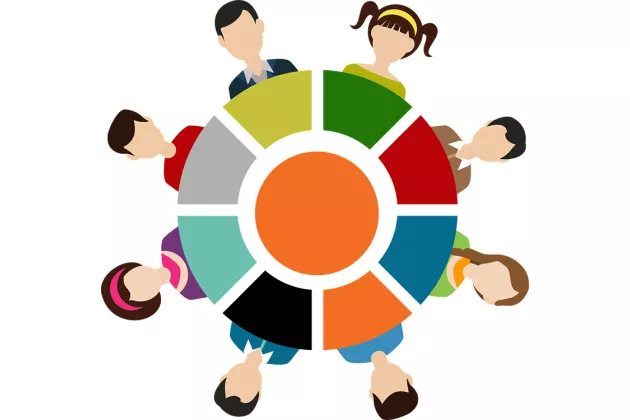Apr
Challenges and Opportunities in Participatory Research Methods

Lund Social Science Methods Centre is organising a one-day conference on participatory based methods to expand and explore current approaches. We invite scholars, professionals and other stakeholders to bring new insights to the challenges and opportunities these methods bring to the fore, to share research, and to plan collaborations and future activities.
At the Faculty of Social Sciences in Lund, scholars from various disciplines often collaborate with actors outside academia, to gain new knowledge and insight into different fields of research. In their research, a variety of participatory research methods and approaches are used. These types of activities have developed within traditions such as participatory action research (PAR), patient and public involvement (PPI), citizen science, transdisciplinary research, and Mode 2 approaches.
Programme
09.00 Welcome and introductions
09.10–10.10: Keynote: Centering the Margins: Perspectives on Collaborative Knowledge Production.
Professor Alice Schippers, University of Humanistic Studies, Utrecht.
Presentation details
10.10–10.30 Coffee
10.30–11.15: Collaborating for improving services
- Involving persons with severe to profound intellectual disability in research - Petra Björne
- Research circles as part of social work signature methodology - Sara Hultqvist et al
- Increasing participation in society for people with dementia - Yvonne Johansson
11.15–11.20: Short break
11.20–11.50: Experiential methods
- Collaborative research on the meaning of experiential knowledge - Cecilia Heule & Tabitha Wright Nielsen
- Member checking: A feminist participatory method of preliminary data analysis to improve transactional validity - Martina Angela Caretta
11.50-13.00 Lunch
13.00–14.00: Keynote: The Danish Family Revolution: A New Approach to Experiences and Institutions (FREI).
Professor Klaus Petersen, the Danish Centre for Welfare Studies at the University of Southern Denmark
Presentation details
14.00–14.20 Coffee
14.20-14.50: Creative methods
- Art and Immersive Technologies as New Research Methodologies in the Humanities and Social Sciences - Yafa Shanneik
- Reflections on using creative methods and embedded research practices to empower community-based social initiatives to explicate the value of their work methods - Esther Aminata Kamara & Tamara Witschge
14.50–15.00: Short break
15.00–15.45 Differing agendas in collaborative research
- Who asks the question? How different perspectives influence the choice of focus and methods - Kerstin Svensson
- Performing communication roles for promoting mutual co-leadership in collaborative research - Jörgen Eksell
- Same goals but different means? Lessons learned from collaborative research with civil society organisations – Julia Bahner
15.45–16.00 Concluding remarks
More about the keynotes
Centering the Margins: Perspectives on Collaborative Knowledge Production
Alice Schippers’s keynote will draw on her extensive experiences of collaborative community development and transdisciplinary inclusive action and social design research approaches. Her work has focused on collaborations with people with intellectual disabilities, social workers, and community workers, among others. Key results include collaborative development of training modules on how to organise inclusive practices in different stages of research projects. In this keynote she will focus on forms of discrimination and exclusion in academic practices, based on stigma and implicit norms - and consequently marginalisation - about knowledge and knowledge production. Drawing on experiences of people who themselves have been the subjects of marginalisation, she will emphasise the oft heard mantra of “nothing about us without us” as an important consideration for policy makers, researchers and professionals who express a commitment to produce more equitable and inclusive practices.
The Danish Family Revolution: A New Approach to Experiences and Institutions (FREI)
Professor Klaus Petersen will present a joint keynote introducing a novel citizen science-based model for the collection of qualitative (oral history) data. They will demonstrate how this model can be applied to develop new insights into the experiences of the major changes in family life since the 1960s. Building on Bjerre and Petersen’s previous work on welfare state development and family history, their new methodological approach allows them to address new research questions and engage in a more open and nuanced understanding of how changes in basic social structures and norm systems affect individual citizens.
Organisers
Organisers are Julia Bahner, Associate senior lecturer at the School of Social Work, and Håkan Jönson, Professor at the School of Social Work
About the event
Location:
Stora Algatans hörsal, St. Algatan 4, Lund
Contact:
julia [dot] bahner [at] soch [dot] lu [dot] se